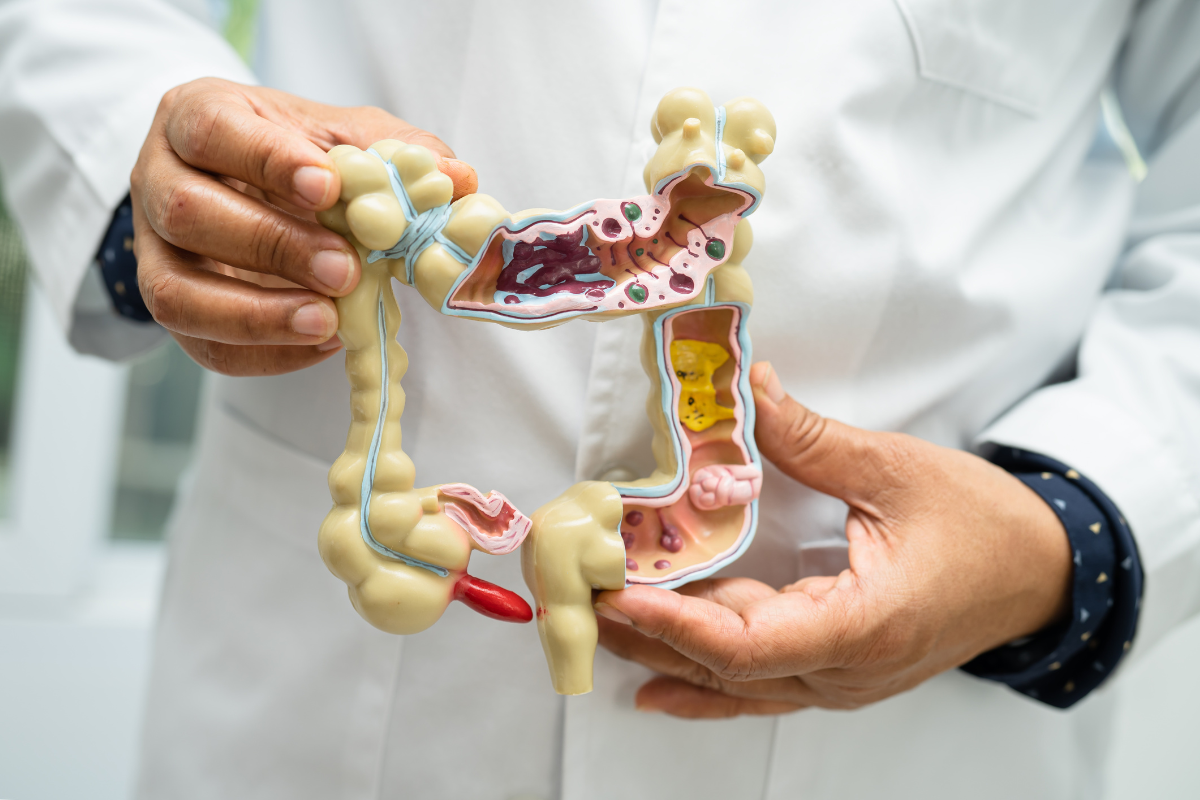MCT fat and a keto diet

MCT fat and a keto diet
MCT fat can be used as a quick source of energy and can support weight loss. It can also fight bacterial growth, improve gut health to manage certain neurological conditions.
MCT fat is a food supplement that has become popular among athletes and bodybuilders, as the energy in the fat is easily and quickly absorbed by the body. MCT is an abbreviation for "medium-chain saturated fatty acids".
Celloptimum uses powdered MCT fat (along with collagen and vitamin C) that comes from coconuts, but mct fat in supplements can also come from coconut oil or palm kernel oil. MCTs are also found in other foods, such as dairy products.
As the name suggests, the fat contains medium-length fat chains called triglycerides. Due to its shorter length, MCT fat is metabolized more quickly by the body than long-chain fatty acids (LCTs) found in many other foods.
There are four main types of medium chain fatty acids:
- Lauric acid (C12)
- Caproic acid (C6)
- Caprylic acid (C8)
- Capric acid (C10)
In some cases, the specific types have unique advantages. MCT fat contains almost exclusively caprylic and capric acid.
Here we list the benefits of consuming MCT fat
MCT fat can help lower calorie intake
MCT fat can potentially help people consume fewer calories throughout the day.
MCT fat contains about 10 percent fewer calories than long-chain triglycerides (LCTs), which are found in foods such as olive oil, nuts and avocados.
An analysis of 29 studies found an association between MCT fat and lower calorie intake. People who consumed MCT fat had a moderately lower calorie intake compared to people who consumed LCT fat.
Some people find that MCT fat makes them feel fuller and makes them eat less.
MCT fat has been linked to lower calorie intake, which can help with weight management. However, more research is needed in this area.
MCT fat can affect body composition and weight
MCT fat can help reduce body weight and waist size. Researchers have reported that it can help prevent obesity. Your body can convert MCT fat into ketones, which provide a fat-based energy source for the body when carbohydrate intake is low.
If you follow a ketogenic diet, MCT fat may help you stay in the fat-burning state known as ketosis. A ketogenic diet contains very little carbohydrates and a lot of fat. A ketogenic diet can help you lose weight more easily and reduce the percentage of body fat.
MCT fat can be a good source of energy
The body absorbs MCT fat faster than long-chain fatty acids (LCTs), which contain more carbon in their fatty acid chains. Due to its shorter chain length, MCT fat is absorbed more quickly from the gut to the liver and does not require bile to be broken down like long chain fat does. In the liver, the fats are broken down to either be used as fuel or stored as body fat. Because MCT fats easily enter your bloodstream without being broken down, they can be used as an immediate source of energy.
When on a ketogenic diet, MCT fat can also be converted to ketones in the liver. These ketones can pass through your blood-brain barrier, making them an energy source for your brain cells.
MCT fat can help the body burn fat for energy
Researchers have investigated whether MCT fat can help you burn fat instead of carbohydrates during exercise.
One study found that athletes who took 6 grams or about 1.5 teaspoons of MCT fat with food before cycling used more fat instead of carbohydrates for energy, compared to those who took LCT.
In a randomized controlled trial, men who consumed MCTs burned more fat during exercise.
Although MCTs can help increase fat burning during exercise, study results are mixed on whether MCT fat can help you exercise better.
The results of an animal study suggest that an MCT-rich diet may not impair exercise performance, unlike an LCT-rich diet, which may impair exercise performance.
MCT fat can potentially increase fat burning and reduce the need for carbohydrates during exercise, but the evidence is mixed. It is also unclear whether this can translate into improved exercise performance.
MCT fat can help manage epilepsy, Alzheimer's disease and autism
Studies have shown that MCT fat and a ketogenic diet can help manage conditions such as epilepsy, Alzheimer's disease and autism.
It is important to remember that MCT fat is not a substitute for prescription medications or medical treatments. You should not take any dietary supplements without first talking to your doctor.
Epilepsy
While the ketogenic diet has become popular among people looking to lose weight, it was first introduced as a way to manage epilepsy. Researchers found that fasting increases the production of ketones and that this can reduce the frequency of epileptic seizures. Because MCTs can be converted to ketones, they may be beneficial in managing epilepsy.
Although there are few human studies investigating MCT and epilepsy, in vitro and animal studies suggest promising results. One small study included adults with epilepsy who did not respond well to medication. As a group, participants had 42 percent fewer seizures when they supplemented with MCT fat for 3 months.
If you are considering a ketogenic diet or MCT fat to manage your epilepsy, talk to your doctor first. Additionally, it is important to note that a ketogenic diet is not for everyone and can be challenging to follow long term.
Alzheimer's disease
Alzheimer's disease impairs your brain's ability to use sugar. A ketogenic diet offers an alternative source of energy: ketones. This fuels your brain and may enable brain cells to survive better with Alzheimer's.
Researchers found that prioritizing MCTs as a source of fat on a ketogenic diet allows people to eat more carbohydrates than on a regular ketogenic diet, while still efficiently producing ketones. Eating more carbohydrates can make the diet easier to follow over time.
Additionally, one study found that taking MCTs for 30 days improved cognition in people with Alzheimer's disease with a certain gene type, specifically APOE ɛ4-negative.
In another study, people with mild to moderate Alzheimer's disease saw increased ketone utilization in their brains when they took 30 grams of MCT fat daily. Their brains used ketones at the same rate as healthy young adults who took MCT fat.
Other researchers have suggested that 20 to 70 grams of MCT fat from supplements, which include caprylic and capric acids, could modestly improve the symptoms of mild to moderate Alzheimer's.
A meta-analysis of 12 studies indicated that MCTs may promote improved cognition in Alzheimer's disease, but stronger evidence is needed.
Overall, the use of MCT fat in Alzheimer's disease shows some promise, but longer and larger studies are needed.
Ketogenic diet as a treatment for Alzheimer's disease
Ketone bodies are the brain's main source of energy if you are fasting or have a lack of sugar. A ketogenic diet is a diet where you eat carbohydrates only from green vegetables and instead increase the amount of fat in the form of fatty fish, bacon, avocado, cream and eggs. This diet mimics the fasting state and can increase the amount of ketone bodies without causing energy deficiency. A ketogenic diet also keeps blood sugar low, which activates the breakdown of the body's fat layer and increases the absorption of fat from the diet, which improves the brain's sugar absorption. Ketone bodies have also been shown to have protective properties for the brain and can improve memory on their own. To make it easier for patients with Alzheimer's disease, they can e.g. eat coconut oil to increase the production of ketone bodies instead of changing your entire diet. But since ketone bodies cannot improve the brain's sugar uptake, a ketogenic diet would be a better approach.
MCTs have been shown to have antimicrobial and antifungal effects
Some researchers suggest that it may have some anti-inflammatory effects, which may contribute to this result, but more studies are needed. Coconut fat, which contains a lot of MCT fat, has been shown in an older in vitro study to reduce the growth of Candida albicans by 25 percent. This is a common yeast that can cause thrush (fungal infection of the oral cavity) and various skin infections.
An in vitro study also showed that cocoa fat reduced the growth of a disease-causing bacterium called Clostridium difficile, which can form poisons/toxins that irritate the intestinal mucosa.
Coconut fat's ability to reduce yeast and bacterial growth may be due to the content of caprylic acid, capric acid and lauric acid.
In a test-tube study, coconut oil with MCTs slowed the growth of Staphylococcus aureus and helped immune cells destroy the bacteria. Staphylococcus aureus causes skin infections and other potentially serious conditions.
However, note that most of the research on MCT fat and immune support has been conducted via in vitro or animal studies. High-quality human studies are needed before stronger conclusions can be drawn.
Overall, MCTs may have a variety of antimicrobial and antifungal effects, although more research is needed.
MCT fat can help manage blood sugar levels
Some studies suggest that MCT fat may also have benefits for people with diabetes and those with metabolic syndrome.
A small study followed 40 people with diabetes. Those who consumed MCT fat daily lost weight, had a reduced waist size and improved insulin sensitivity*, compared to those who took corn oil containing LCTs.
*Research also shows that physical activity has positive effects on insulin sensitivity , blood sugar levels, abdominal obesity, fat deposits in the liver, body composition, blood pressure, blood fats and the blood's coagulation ability. Increasing physical activity is actually the single action that has the strongest effect on insulin sensitivity.
A randomized controlled trial followed people with metabolic syndrome for 4 weeks with a daily consumption of coconut oil containing medium-chain fatty acids (MCTs). Participants had significantly lower fasting blood sugar and triglycerides and higher "good" HDL cholesterol.
What is MCT fat good for?
MCT fat is a dietary supplement that many athletes and bodybuilders use to get a boost of energy or to lose weight. Supplementing with MCT fat also helps with other things like fighting infections and managing certain neurological conditions, and more.
Does MCT fat reduce belly and waist fat?
Some research suggests that MCT fat may help reduce waist size, but more research is needed to confirm this.
Who should not use MCT fat?
People with heart disease or liver disease considering using MCT fat should first discuss with their doctor as MCT fat can potentially worsen both conditions.
Medium-chain triglycerides may potentially have health benefits. Potential downsides may include higher blood lipids and possible fat accumulation in your liver.
Talk to your doctor about the benefits and risks of adding MCT fat to your daily diet.






